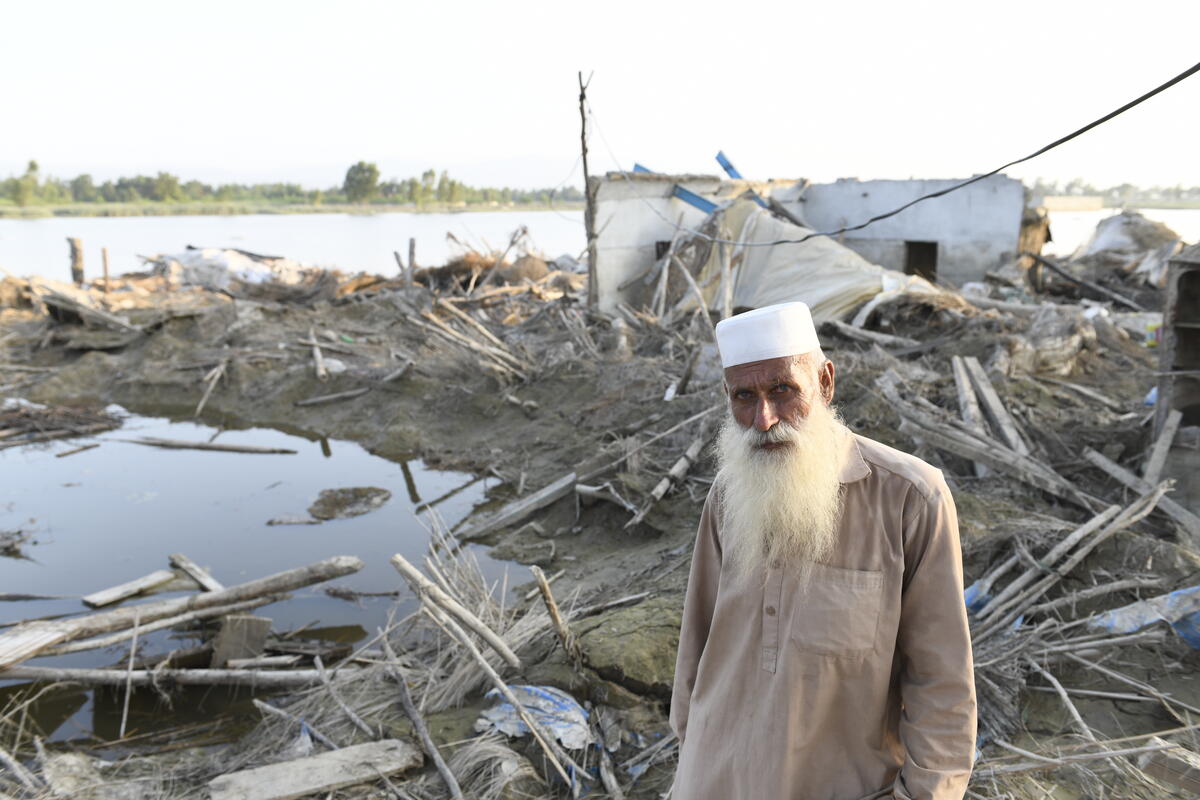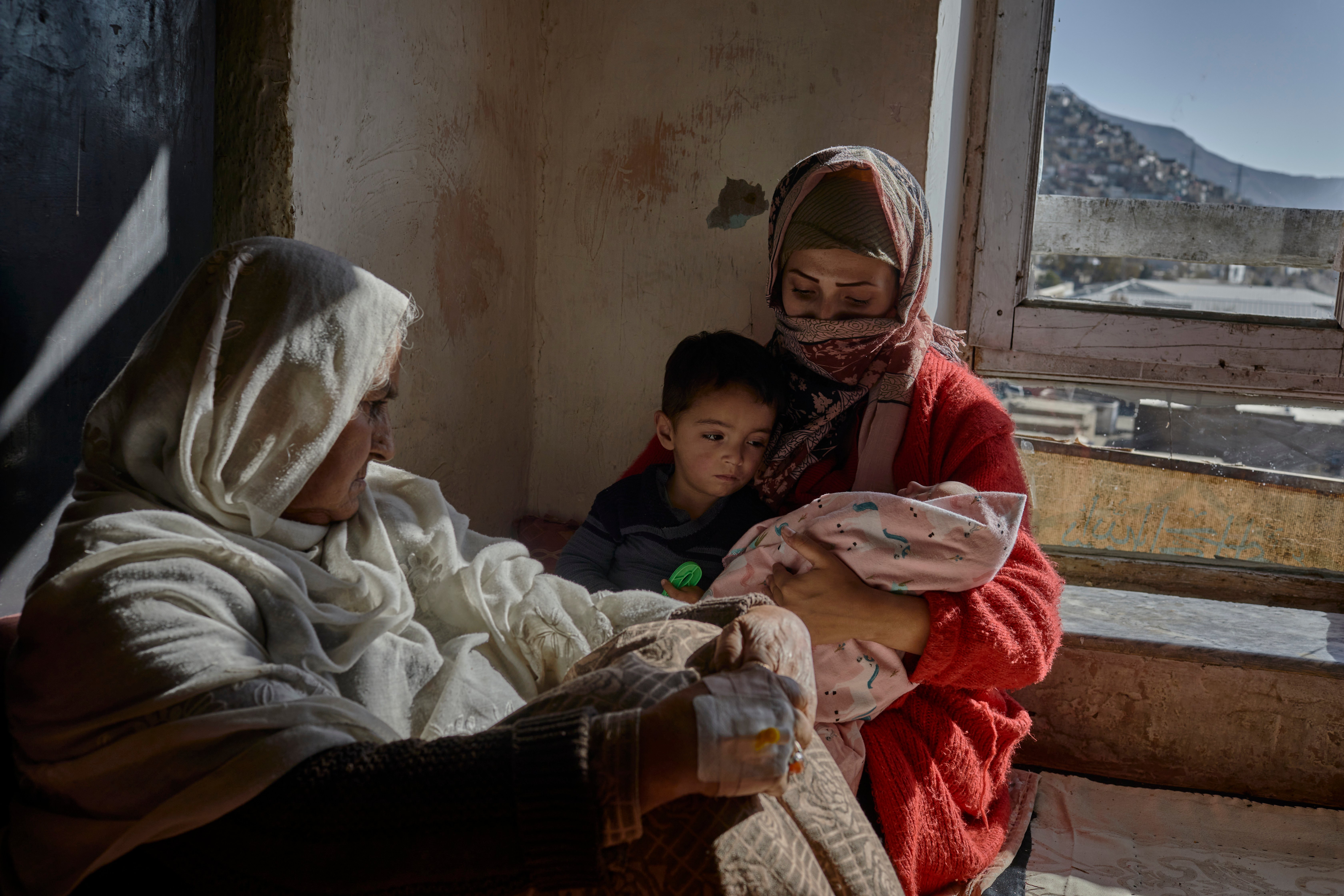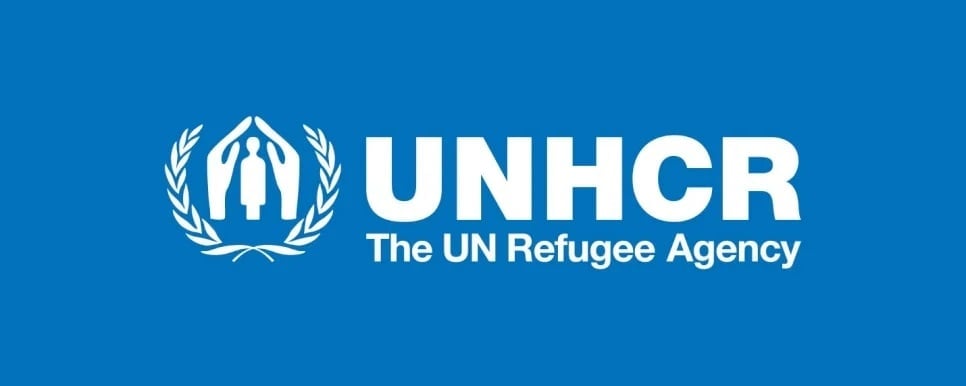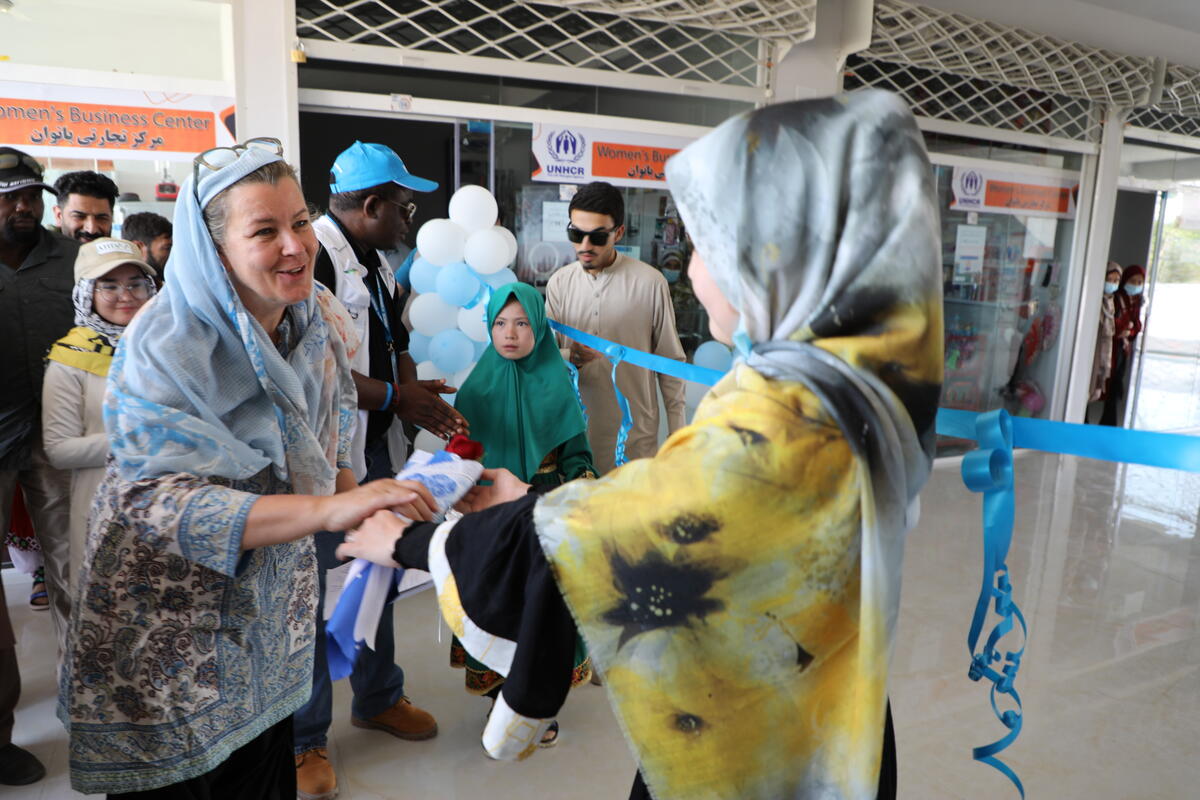Afghanistan: few effects so far of reported Taliban surrender
Afghanistan: few effects so far of reported Taliban surrender
Reports of a Taliban surrender in Afghanistan's Kandahar Province so far have had little effect on the refugee situation in the border areas.
There are currently about 17,000 recent Afghan arrivals in two camps near the border town of Chaman in Pakistan's southern Balochistan Province. At least 2,000 destitute people are waiting in the no-man's-land between at Chaman, braving heavy dust storms and nightly cold under little shelter as Pakistan authorities continue to permit UNHCR to register only some 400 Afghans a day at our nearby border camp.
An estimated 160,000 Afghans have fled to towns and camps in Pakistan's border belt since Sept. 11 - the majority of whom arrived unofficially and remain sheltered in long-time Afghan refugee settlements and the region's cities and towns - and they may be among the first to return home if the situation in their homeland quickly stabilizes, particularly as many left relatives behind to look after their property. Even before this week's developments in Kandahar, about 200 people a day were returning from Pakistan to Afghanistan - many of them from minority tribes returning to areas in the north of the country. But for Pakistan and Iran's more than 3.5 million Afghan refugees, many of whom have lived outside their homeland for decades, their decision to return will take some time.
On the logistics front, yesterday the Nijni Pyandj - Shirkhan Bandar river crossing between Tajikistan and Afghanistan was opened and barges of humanitarian aid carrying trucks from the Russian government's EMERCOM relief arm bound for Kabul will likely begin crossing this weekend. This crossing point can support much greater amounts of cargo than Tajikistan's other crossing at Farkhor, and should provide a boost as agencies send supplies into northern Afghanistan.
On Saturday we are sending our first convoy of 14 trucks with aid stored at our depot in Ashgabat, Turkmenistan, into Afghanistan. This inaugural convoy of Swiss-donated aid into north western Afghanistan will deliver 1,000 tents, 7,000 blankets, 4,000 sleeping bags, 580 stoves, and 5,000 bars of soap for displaced Afghans living in Badghis Province, north-east of Herat, and in Faryab Province, further northwards.
On Sunday, we are sending our second aid convoy from the eastern Iranian city of Mashad into Herat, Afghanistan. That convoy is carrying 1,000 tents, 10,000 blankets, 1,000 stoves, 1,000 plastic tarpaulins, 1,000 jerry cans, and 5,000 bars of soap. Over recent days UNHCR staff in Herat have distributed relief supplies to displaced Afghans living at Maslakh camp just outside the city, including 120 tents, 100 plastic tarpaulins and 1,000 blankets. Needs at the site are enormous, and the supplies arriving from Iran will help meet the needs of some of the thousands of Afghans encamped at the makeshift Maslakh site.
Next week we plan to start sending supplies from Peshawar in Pakistan's North West Frontier Province into the Jalalabad region. UNHCR will initially send shelter materials, cooking stoves, blankets, kitchen sets, soap and other items for 70,000 people from some 14,000 needy families in the Nangarhar, Paktia, Paktika, Khot and Kunar and Laghman provinces.
In Pakistan, we expect to resume on Saturday our relocation convoys shifting refugees from Jalozai site near Peshawar into the tribal agencies to the west. You will recall that our staff were involved in a shooting incident on Tuesday in which a UNHCR vehicle was lightly damaged, but which could have had tragic consequences for the staff members involved. Local authorities are investigating last Tuesday's incident, and together with the government we've established new procedures for staff working in and around the tribal belt.
Funding for UNHCR's relief operations in Afghanistan and the neighbouring countries currently stands at $67.4 million. We require $181.8 million through June 2001. This includes $140 million for post Sept. 11 emergency requirements in the region and $41.8 million for our annual programme budget for the last three months of 2001 and the first half of 2001.









